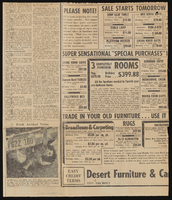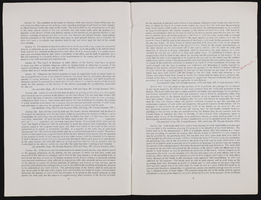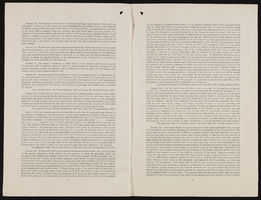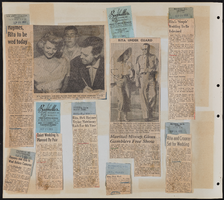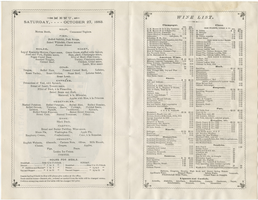Search the Special Collections and Archives Portal
Search Results
John West oral history interview
Identifier
Abstract
Oral history interview with John West conducted by Claytee D. White on August 10, 2000 for the Boyer Early Las Vegas Oral History Project. In this interview, West discusses his family background and arriving to Las Vegas, Nevada in 1954. West describes his educational experiences in Las Vegas and his career as a clinical psychologist. He recalls his father’s career in medicine and becoming the first African American licensed medical doctor in Las Vegas. West then talks about attending entertainment events before race integration was introduced, and the voting patterns in West Las Vegas. Lastly, West discusses his father’s decision to remain living in West Las Vegas and operating his medical office there after integration.
Archival Collection
Transcript of interview with Hank Greenspun by Tony Bleeker, 1975
Date
Archival Collection
Description
Brief interview with Hank Greenspun by student Tony Bleeker. Greenspun speaks about changes in southern Nevada over the years, including politics, gaming and the economy. He mentions the role of the newspaper industry to provide "balance" in society.
No release form is on file for this interview. The interview is accessible onsite only, and researchers must seek permission from the interviewee or heirs for quotation, reproduction, or publication. Please contact special.collections@unlv.edu for further information.
Text

Brandon Snook oral history interview: transcript
Date
Archival Collection
Description
Oral history interview with Brandon Snook conducted by Barbara Tabach on March 14, 2018 for the Remembering 1 October Oral History Project. In this interview, Colonel Brandon Snook describes his military career as a trauma surgeon and his job at Nellis Air Force Base in Las Vegas, Nevada, where he has been stationed since 2004. He shares details about Sustained Medical and Readiness Trained (SMART), a program that brings physicians, nurses, and technicians from the around the world to the University Medical Center of Southern Nevada (UMC) for intensive medical training. Snook also discusses the night of the October 1, 2017 mass shooting when he and others from Nellis were called in to UMC to treat the injured.
Text
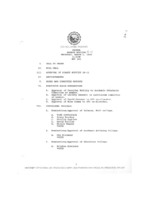
Meeting minutes for Consolidated Student Senate University of Nevada, Las Vegas, March 3, 1988
Date
Archival Collection
Description
Text
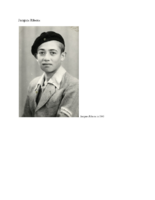
Biographical essay by Jacques Ribons, 2014
Date
Archival Collection
Description
Jacques Ribons describes his life during the Nazi occupation of Poland. During the liquidation of the Jewish ghetto, his family decided to turn themselves in to the Germans. They were sent to a prison and separated. He and his brother survived and went to France with the OSE, and came to the United States in 1947.
Text

